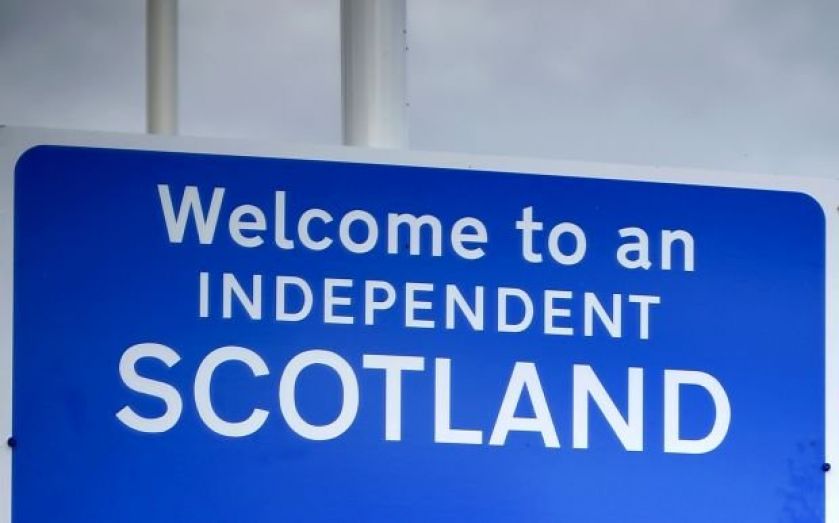Independent Scotland would need £100bn to avoid recession, UBS warns

The remainder of the UK could have to lend an independent Scotland as much as £100bn to avoid a calamitous recession north of the border, a group of economists warned yesterday.
Any suggestion of such a deal could lead to a rebellion by English MPs who are already frustrated by party leaders’ offer to spend more on Scotland if it stays in the union.
And if Scotland takes on its share of the UK’s debt as an independent nation, it would need to borrow 88 per cent of its GDP immediately, UBS economists estimate – even before borrowing to pay for any foreign currency reserves or the costs of starting up on its own.
As Scotland’s GDP stands at £106bn excluding oil and gas shares, which are yet to be negotiated, this means a loan in the high tens of billions of pounds. Such a huge sum could not easily be raised by a new government, and so UBS’s Paul Donovan believes the UK could be forced to offer a loan.
“It would be sensible for the British government to offer the Scots 15 years to pay off that debt [15 years is the equivalent average time to maturity for the outstanding UK national debt],” he said. “It would avoid the Scots having to fund a lump sum on day one, and in a negotiated settlement would be the sensible solution.”
The deal would also save on interest costs for Scotland. Economists at IHS believe the country would have a triple-B credit rating, pushing up the cost of borrowing.
However, any deal depends heavily on how negotiations progress between Holyrood and Westminster following the vote. A significant number of Conservative MPs are furious that David Cameron has offered more devolution to Scotland after a No vote.
Christopher Chope MP told City A.M: “We agreed to a Yes/No vote, not devo-max, and it has turned into just that. It seems if the No vote wins, Cameron will say ‘the ends justify the means’, but the reward is just even more goodies for Scotland. It’s a last minute lolly scramble.”
Analysts at the Centre for Economics and Business Research (CEBR) expect severe consequences if a loan is not agreed following a Yes vote. “This would be in the interests of both nations – otherwise Scotland would have to go through seriously rapid austerity measures to get the budget deficit down,” the CEBR said.
The group expects Scotland to need £12bn in its first year to fund its deficit. Yet the Treasury said it was not planning for any such deal. “The government is not making contingency plans for a yes vote,” a spokesperson confirmed last night.
Meanwhile, a leaked report showed Scotland faces a £450m gap in funding for the NHS, which would necessitate heavy cuts no matter who wins the referendum.